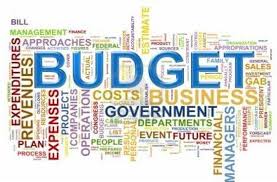A Government Budget is an annual financial statement showing item wise estimates of expected revenue and anticipated expenditure of the government during a fiscal year i.e 1st April 20** to 31st March 20**.
Features of the Government Budget
- It is related to a fixed period of time, generally one year.
- It is a statement of the future estimation of government receipts and expenditures.
- Expenditure is approved in accordance with the objectives.
- It is duly approved by the parliament.
Government Receipts & Government Expenditures
- Revenue Receipts: These are basically two types of Tax receipts & Non-Tax receipts. Tax receipts includes income tax, corporation tax,estate duty, gift tax, custom duty, sales tax, VAT etc. Non-Tax receipts includes fees, license and permits, es cheat, special assessment, fines and penalties, income from public enterprises, gifts and grants etc.
- Capital Receipts: These are basically of two types, public debt and Deficit Financing. Public debt refers to the debt incurred by the government on behalf of the society as a whole. Deficit financing may be interpreted to mean financing the deficit in government budget. For deficit financing government borrow from RBI based on issue of new currency.
- Revenue Expenditure: It is the expenditure incurred by the government on the goods and services meant for collective consumption. This expenditure is met out of the tax and non-tax receipts of the government. These are recurring or repetitive in nature and short period expenditure.
- Capital Expenditure: It is related to long term planning and construction activities of the government. These are met out capital receipts of the government including government loans, savings and capital transfers from rest of the world.
Types of the Government Budget
- Revenue Budget: It is that budget which shows revenue receipts and revenue expenditure of the government.
- Capital Budget: It is that budget which shows detailed estimates of the receipts of the government through loans and its long period capital expenditure.
- Balanced Budget: The government Budget is that budget which government receipts are equal to government expenditure.
- Deficit Budget: This is a budget in which government expenditures are greater than government receipts.
- Surplus Budget: This is a budget in which government receipts are greater than government receipts.
Click here for government certification in Accounting, Banking & Finance





5 Comments. Leave new
Informative article..! good effort…!
Good work.Keep it up1
Well done. keep it up.
Informative article! Helpful too
Good work :Don goverment budget
The points as well as the content as well as the presentation was really good 😀
The spliting into sub topic with points was really nice
Budgeting is a very important process as its good to keep a check and allot some capital to this this department 😀 every year for the proper working . 😀